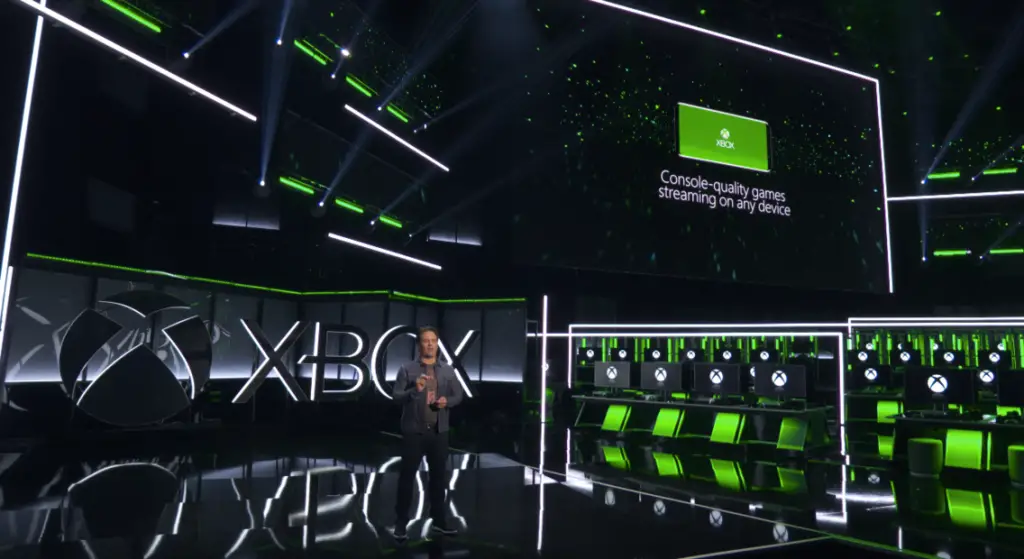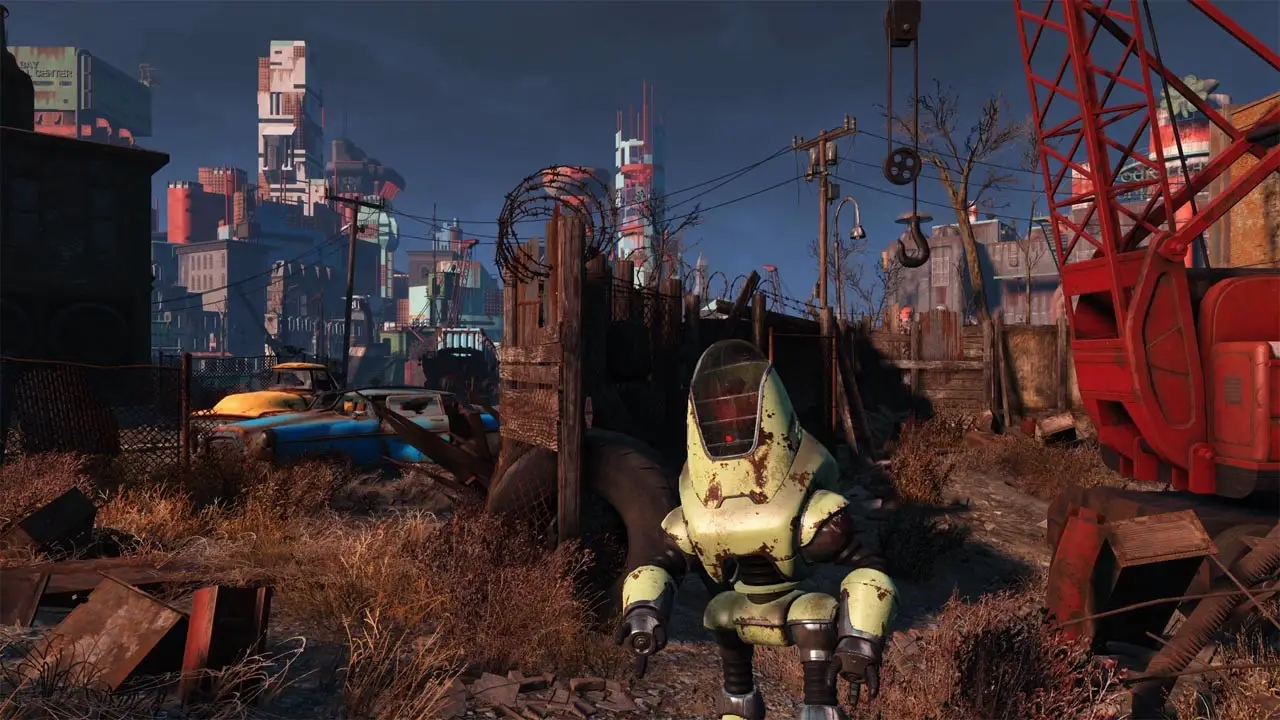In 2003, I got the first ever Xbox for Christmas. I remember unboxing this revolutionary piece of hardware, the bulkiness of it, the harsh smell of the factory as I tore off the plastic packaging. As a kid about 7-years-old, the console was as big as my torso, and probably weighed the same. The Xbox came with one controller, and my brothers and I would fight over whose turn it was to play the campaign for “Halo: Combat Evolved,” the very first in the epic Halo franchise, and one of the only games we owned.
It’s hard to believe that in 2020, 19 years after the release of the original Xbox, I could be playing an unlimited amount of online Xbox games with my brothers on opposite sides of the country, on our phones.
Console gaming has come a long way since the first-generation Xbox. If you had Xbox Live back in 2002, you were one of the cool kids, because the ability to play video games online with your friends from different houses was all the rave. Your parents were afraid that you would never go outside again and that all your friends were digital characters or some creepy middle-aged guys pretending to be your age.
Years later, in 2013, you still played with your Xbox friends, and your mom still didn’t realize that you can’t pause an online game, but the Xbox One was a serious machine. It could run games that had some of the best graphics in console gaming to date, unless you were a PlayStation 4 kid with marginally better graphics. The Xbox One even had the Kinect option, which told the world that Nintendo was not the only company that could bring you motion gaming. Although the Kinect was buggy, laggy and generally unpopular among diehard Xbox lovers at first, it was a step toward the future possibilities of gaming.
Today, there are loads of Xbox games, many relying completely on online gaming such as the ever so popular “Fortnite” and “PUBG.” The only problem? You have to download games either onto your console’s hard drive, which can fill up fast, or an external drive, which can set you back around $50 depending on where you buy it.
So, Microsoft’s solution? Codename: Scarlett.
Phil Spencer, Microsoft’s head of Xbox teasingly announced at E3 that there are plans to release new “consoles” in 2020, but didn’t give any specifics about these mysterious future Xbox devices. It’s difficult to say for sure what the new consoles will entail, but popular rumor says that Xbox will release two consoles, one new and improved Xbox that will probably be similar to the already existing devices, and another smaller, supposedly cheaper console that is dedicated to streaming games. Yes, that’s right, streaming video games.
Earlier in July, the Xbox Game Pass became available, offering unlimited access to around 100 games for a monthly fee of $10. This is a particularly interesting service akin to Netflix. In fact, Game Pass is being dubbed the “Netflix of gaming.”
The list of available games includes many popular titles like “Mass Effect”, “Fallout 4” and even a few from the “Halo” franchise. The monthly fee gives players access to games as long as they are available on the platform. The idea is to rotate in and out the video game titles much like Netflix does to movies and TV shows, allowing for a variety of seemingly endless gaming without having to dish out over $60 for a single game.
The Xbox console dedicated to streaming sort of sounds like Valve’s Steam Machine released in 2015, which was designed to give a console feel to PC games downloadable through Steam, but struggled to stay afloat in the wake of the already existing Xbox One and Playstation 4.
As Spencer told the E3 audience, “Our cloud engineers are building a game-streaming network to unlock console-quality gaming on any device…on your Xbox, your PC, or your phone.”

By the sound of it, this is a hefty promise, but probably a smart move on Microsoft’s part. It’s no secret that “Fortnite” and “PUBG” have both released mobile versions of their games in the past few months, so it makes sense that a gaming giant like Microsoft would want to keep up with the trend of mobile gaming.
If I were to guess, I’d say that the Xbox Game Pass is both a sneak peak of what gamers will see when Microsoft does finally release their supposedly high quality mobile gaming options, and also a way to tide those gamers over until then — a sort of promise of what is to come as well as a trial run of the service.
Of course, with any new service, there are pros and cons. The obvious advantage to the streaming service that Game Pass has to offer is the low cost. Paying for Game Pass is pretty much the same as a standard Netflix subscription, and you can cancel it at any time if you’d rather buy your games individually. As someone who enjoys trying out a lot of new games, I find this extremely enticing.
The other advantage I notice is for game developers. Many times, it’s hard for a new, experimental game to get off its feet and into the hands of gamers. For game designers, it can be a lengthy and expensive process, and they don’t even know whether the game will take off or flop.
Game Pass, however, gives smaller game companies a chance to release their hard work to the public at a smaller cost and, I’d imagine, in less time than it would take to release a physical disk. That way, if the game doesn’t turn out to be all it’s cracked up to be, the game developers don’t lose as much money, and the folks behind Game Pass can just rotate the game out and substitute a different one.
This is a lot like what Netflix sometimes does with its titles. Say you watch a crazy experimental indie film or TV show and decide that it’s way too odd or just downright terrible, and so do others who write reviews — Netflix will subsequently remove the title, replacing it with possibly another one still too weird for the average viewer.
Although this title rotation can be advantageous for the company, I can see it as a possible downside when it comes to the gamer. When you purchase a hard copy of a video game, you have it forever — or at least for as long as it takes for you to scratch the hell out of the disc. That means you can take your time completing story lines, be comfortable buying add-ons and downloadable content and know that you will always be able to pop in the disc and play away.
But when it comes to streaming, you don’t know exactly how long the game you love will stay up on the list. In fact, the word is that Game Pass will refresh the list of games every month, and if you’ve spent countless hours working towards a goal only to have your favorite game removed, I could imagine the only thing streaming will be tears of frustration down your face. I’m sure that your progress is saved if you wanted to buy a hard copy of the game, but the whole point of Game Pass is to not have to dish out money for a disc.
With that said, I think Game Pass is a pretty cool idea if you like dipping your toes in a lot of different gaming experiences, but probably not so much if you want to spend serious time on one game.
















